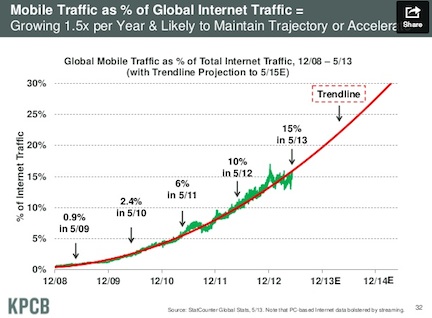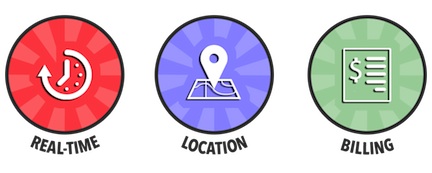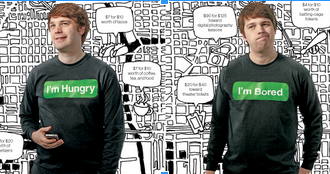“Mobile First” has been floating around for the past few years and below is my attempt to apply thought to the best use of a rubric for business models in the mobile space. I have been teaching when to think mobile (as blanket rules like “mobile first” usually have holes in them) for the past five years at USC and I am now watching great business being built around it. My Mobile vs. Internet rubric would includes the following:
1. Real Time – In the US and other early adopters of the web, larger screens are still around and widely used.

This means that a key differentiator is the fact that for people using smart phones, the phones are within reach close to 24 hours a day, and are a great way to fulfill a real time need (news, sports scores, movie times, etc.).
2. Location based – I always thought about this as the location of one of the parties (e.g. the end user, who is in proximity to a store, etc.). My thoughts have recently expanded to think about multiple parties and how this can be used to connect people.
3. Billing – Mobile always offered some sort of built in billing mechanism. Originally the only vehicle was to bill through a carrier relationship where levied up to a 50% fee for using their walled garden. The iPhone changed that and now you access billing through transacting within an app through a stored credit card, or through the app platform allowing in-app purchase, etc.
Leverage all three for your mobile app and you can build a monster in the mobile space. Three years ago, Groupon talked about a mobile strategy that would come down to “two “hungry” and “bored” buttons”. The title of the article was “Are Four Words Worth $25 Billion for Groupon?”.
While the valuation has not held up for Groupon, this is a perfect example of the the application of the rubric earlier discussed. Both activities (hungry and board) are real time activities, where location is relevant and billing is built into your Groupon account. With just a few clicks one would be able to complete a transaction.
Another more recent example is Uber (or Lyft). When you need a ride (in real time), you can locate a car based on your location (and their location) and have the ride automatically billed to your card.
I am excited to see future apps that dive deeper into these three areas and the improvements to quality of life that they will cause.
Images from chaugust.com, KPCB & Business Week.

